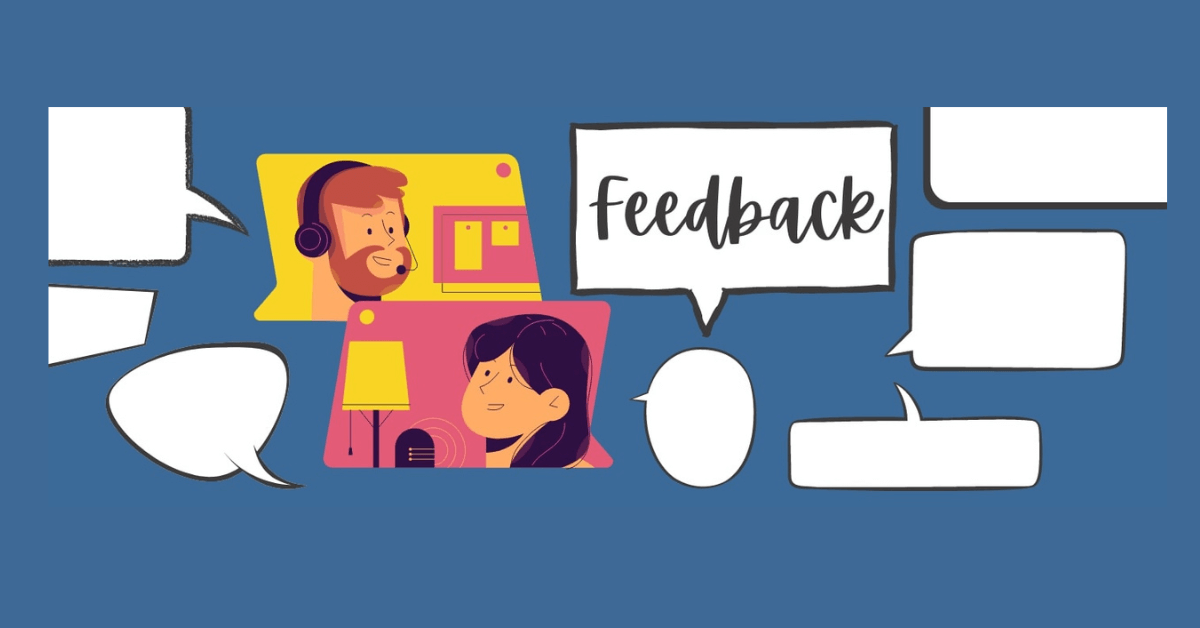Education is not just about learning. It is a slow and steady process that requires learning, unlearning, and relearning. As educators, we have all heard about the importance of unlearning- letting go of certain practices to make way for more effective ones. The past year has been an epitome of giving up old ways and embracing new ones for educators all over the globe. We learnt that a classroom need not always be a physical space. We came up with new strategies to keep the students engaged in a virtual classroom. We adapted to unique, previously unheard ways of assessing the learners. Of all the challenges that the past year has offered me on a platter, finding an effective way of giving feedback to the students has been the one that has helped me grow as an educator.
In a physical set up, it was easy. I would circle the spelling mistakes, underline the grammatical errors, and leave other remarks as short phrases in the margin. For some students, who had different learning needs, I would make the effort to write the correct spelling next to the miss-pelt word. At that time, I thought it was enough. But the moment everything shifted to the virtual platform, the idea of giving feedback felt like a grueling task. For every error I found in a student’s work, I had to rewrite it in the ‘feedback’ column along with the acceptable word or phrase. It was not enough to tell a student that they lost a point for exceeding the word limit. I had to explain why. Similarly, I could not just tell a student that their work was ‘good’, I had to explain what was good about it.
While the process was something that needed getting accustomed to, the consequence was a reward. After the first couple of months, I noticed that my learners were going through the feedback and working on the suggestions. Most of the students never made the same mistake twice. And if a student did repeat a mistake, it was a feedback on my teaching. At such instances, I reflected on how I could have explained the concept better or how I could help the student learn to spell certain words. Of course, it meant spending nearly half an hour on each student. It meant spending an hour on each paper after the exams and cutting it too close to the deadline. But it has been worth it. Telling a student how they could have concluded their essay effectively with the help of examples is more helpful than just writing ‘conclusion not effective’ in the margin. Telling a child ‘Your story reminded me of Anne of Green Gables’ is far better than an impersonal ‘good story’.
They say every cloud has a silver lining. The past year has been more than just a dark cloud. But this little silver lining will be something that I will hold on to when the fog of uncertainty makes me ask, ‘Why did I choose to be teacher?’. This little silver lining will be a reminder that I chose to be a teacher because I am willing to learn, unlearn and relearn.

Ms. Rosalind Princess Reshma
English Teacher – CAIE
I am a passionate educator, reader, and storyteller. When I am not teaching the nuances of language to brilliant minds, I write poetry, flash fiction, and book reviews hoping that my words might put a smile on someone’s face. I love animals and live by Wordsworth’s saying, “nature never did betray the heart that loved her”.
![CHIREC est1989 logo 2019[22] CHIREC est1989 logo 2019[22]](https://www.chirec.ac.in/wp-content/uploads/sites/15/2023/11/CHIREC-est1989-logo-201922.png)




